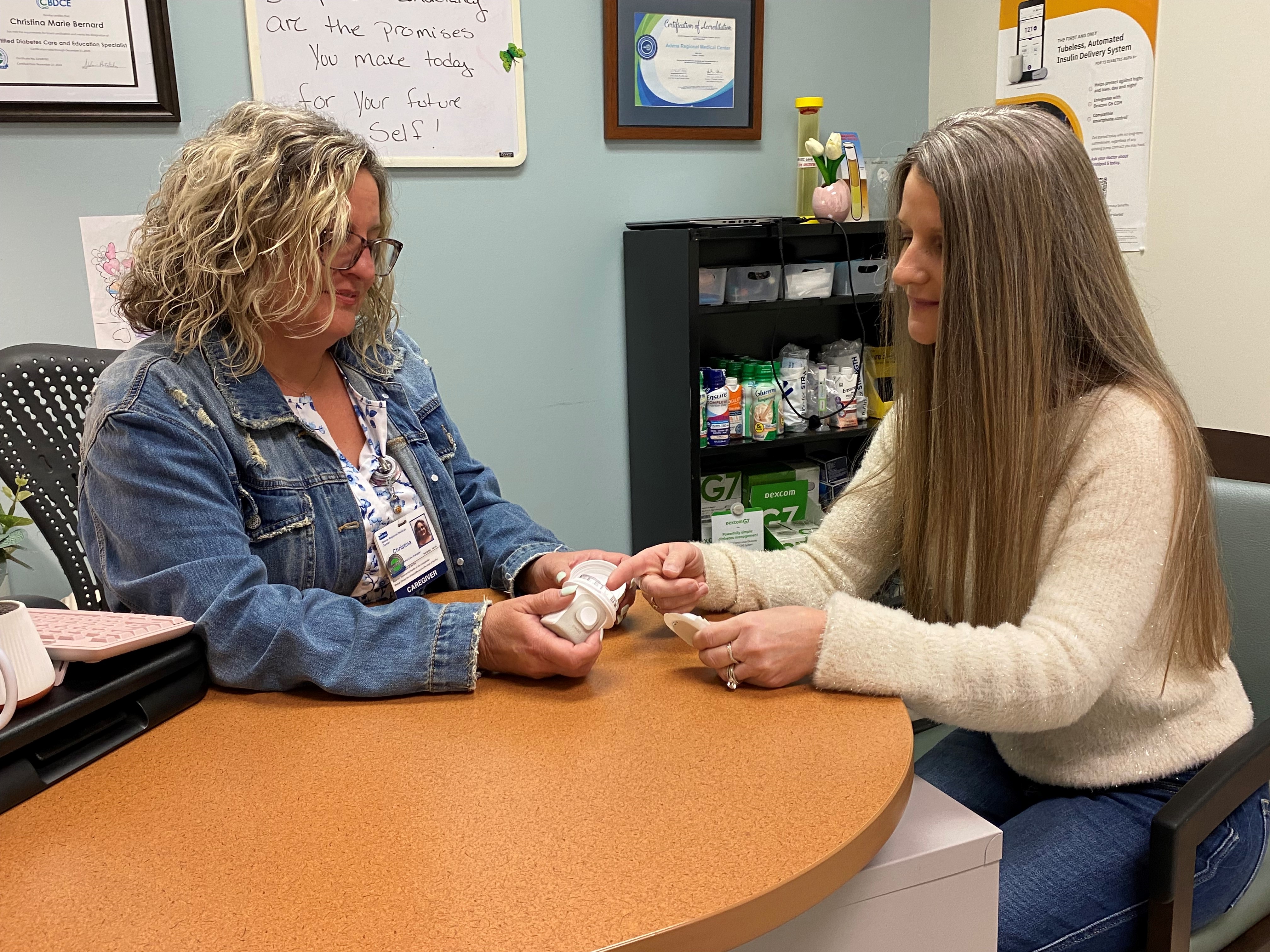Struggling with Diabetes? Adena can help you take control

Sometimes, you don’t know what you don’t know.
That’s part of the philosophy behind Adena Health’s outpatient diabetes program. Whether a patient is newly diagnosed with diabetes or has lived with the disease for decades, the program can help pave the way to a better life.
“Any time is the right time to become part of the program,” said Christina Bernard, certified diabetes care and education specialist. “Just because someone may have dealt with diabetes for 20 years doesn’t mean they have the necessary education about managing their condition. We have the time in our one-on-one sessions and group classes to give them an additional opportunity to focus on their diabetes.”
Patient perspective: Tina’s success story
Tina Carrico, of Piketon, can attest to the program’s benefits. Tina, 44, was diagnosed with diabetes nearly 20 years ago, a couple years after the birth of her daughter. Now, between the individualized sessions with Bernard and a series of seven group classes, Tina said she has gained a greater understanding of how to manage her diabetes than she ever had before. She had learned things she never knew about handling blood sugar highs and lows, preventing complications, counting carbohydrates, employing better exercise techniques, and exploring other self-care behaviors.
“There was something different I learned every class,” Tina said. “It’s a wonderful program that has really changed my life. It is very supportive, caring, and helpful, and I learned things I wasn’t even aware I needed to know.”
Bernard said she hears similar reactions from other patients, so much so that follow-up classes are being considered for those who have completed the current seven being offered. Work has also begun toward establishing an inpatient diabetes education program for those who are hospitalized.
Lowering A1C with lifestyle changes, not extra medication
A key focus of the program is helping patients make lifestyle adjustments to dramatically lower their A1C levels. A1C is a measurement of a person’s blood sugar level that indicates how well the body is managing glucose and is a key factor in diagnosing diabetes.
“This program is another avenue of addressing A1C without patients having to add another medication or deal with side effects,” Bernard said. “Education is key. We can help patients learn that they don’t know what they don’t know and help them through the process to a healthier life.”
For instance, as the summer months arrive, Bernard offers several tips for keeping blood sugar under control in the heat, including:
Staying hydrated. Water is important for getting rid of excess sugars, so if dehydration occurs, it’s going to be tougher to bring blood sugar levels down.
Avoiding sunburns. Any time the body gets stressed, such as when it suffers a sunburn, it can cause blood sugar levels to rise. Consistently using sunscreen can prevent this from happening.
If already diabetic and on insulin, taking steps to keep that insulin cool when enjoying the warm weather, not keeping it in a hot car or lying on a beach towel. It’s also important, however, to avoid placing it somewhere where it can freeze.
Gravitating toward treats such as sugar-free popsicles that can help you stay hydrated and cool.
Avoiding regular soda and the sugar it contains.
If attending a summer gathering or barbecue, bringing something for yourself that is blood sugar friendly. Don’t expect the event’s hosts will have something that won’t cause a spike in blood sugar.
The diabetes education program is available only by referral. Those with diabetes or who may be pre-diabetic should speak with their family physician about whether the program would be right for them.
If you’re living with diabetes or think you might be at risk, Adena’s primary care team can help you get the referral you need. To learn more or schedule an appointment with a provider near you, visit Adena.org/PrimaryCare or call (740) 779-FIND (3463).